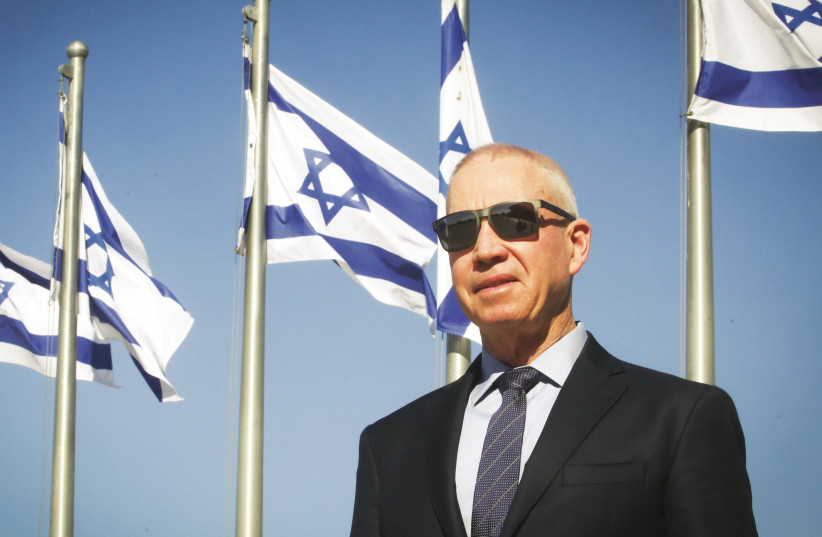Little has been written about the Jordanian, Egyptian and American initiative to summon a second emergency summit with the Israelis and the Palestinians in Sharm El Sheikh. The situation in both arenas is currently so very sensitive that it almost seems as if neither side has any interest in highlighting the existence of the summit, not to mention its contents.
In radical contrast to the upheaval and instability currently unfolding in the internal arena within Israel and despite repeated declarations by Prime Minister Benjamin Netanyahu, according to which there is absolutely no intention to freeze settlement building, the summit’s purpose was to calmly, rationally and responsibly bring some degree of normality and stability back to the region, on the eve of the month of Ramadan.
The Hamas leadership hurled insults at Fatah for caving into the Israelis and the Americans, while the Israeli constituency, which voted for ministers Bezalel Smotrich and Itamar Ben-Gvir, reminded them that the current, most right-wing coalition in Israeli political history has promised that it shall not freeze settlements even for one moment.
Yet, despite all that, Netanyahu indeed promised the Americans, Egyptians and Jordanians that there will be a freezing of the expansion of existing settlements for four months and that no new settlements shall be made legal for the duration of six months.
Furthermore, it has not yet been made clear whether an American-Israeli-Palestinian operations coordination center will be formed – a demand made by the Palestinians. That is despite the fact that the existence and maintenance of some degree of security cooperation with the Palestinian Authority are in the vested interest of Israel for the purpose of protecting the lives of its citizens and minimizing terrorist activity.

Such coordination exists, although its effectiveness and intensity have significantly deteriorated since Netanyahu’s previous term as prime minister and has been kept afloat by former defense minister Benny Gantz and the current minister, Yoav Gallant.
Another demand by the Palestinians was the financial support needed to maintain the salaries of thousands of security forces in order to keep the authority afloat. Although this may serve as the perfect material for Ben-Gvir’s incitement campaigns, given the recent series of terrorist attacks in Israel, in practice, a weakened Palestinian Authority in Judea and Samaria simply pave the way to constant growth and enhancement of the Hamas movement, with organizations, such as the Lion’s Den, recently raising their heads.
The fragile regional stability facing Israel
REGIONAL STABILITY is extremely fragile, given the multiple security threats that Israel is currently facing, while its enemies perceive the internal strife as a weakness to be leveraged for their benefit.
The burning of the village of Huwara by Jewish extremists several weeks ago, as well as several racist public remarks made by Smotrich, shocked many Israeli citizens. Yet more so, these events managed to cause the UAE leadership to return to pre-Abraham Accords’ rhetoric and pro-Palestinian stances, as it could no longer allow itself to remain neutral.
Palestinian terrorist attacks against Israeli civilians have become frequent, while rockets are constantly and systematically fired by Hamas toward the cities and towns in southern Israel, lest the movement shall be forgotten on the eve of Ramadan.
The IDF is constantly performing operations against terrorist cells that practically smell what is termed by Arab bloggers as the internal disintegration of the Zionist entity, that is, while the Palestinian Authority and its security mechanisms, to which these youths do not adhere, are no longer strong enough to stop them.
It is, furthermore, impossible to ignore a rare and most unusual occurrence wherein Hezbollah in Lebanon has recently sent operatives to detonate an explosive in the Megiddo region in the heart of Israel.
While the Saudi-Iranian pact is tactical in nature and does not signify a deep and sincere rapprochement between the long-time enemies, this alliance is nonetheless worrying. The fact that China mediated between the two sides is perhaps more indicative than any other international occurrence thus far that the US influence in the region is decreasing, while that of the Chinese is increasing. This is not an overly optimistic state of affairs for Israel, which is perceived to be small and largely insignificant to China in comparison to its Arab neighbors.
In a manner that may only be characteristic of the surreal realities of the Middle East and in the face of endless security challenges, Palestinians, Israelis, Jordanians, Egyptians and Americans have already met twice to try and bring about temporary regional stability.
It now remains to be seen whether this will be maintained or if irresponsible figures from the current coalition in Israel will play into the hands of Israel’s enemies and ignite the torch which will set the region on fire.
The writer, a former MK, was the founder and co-chair of the first Abraham Accords Caucus in the Knesset. She has been appointed chairperson of the newly-established Women’s Impact Forum of the World Jewish Congress.
